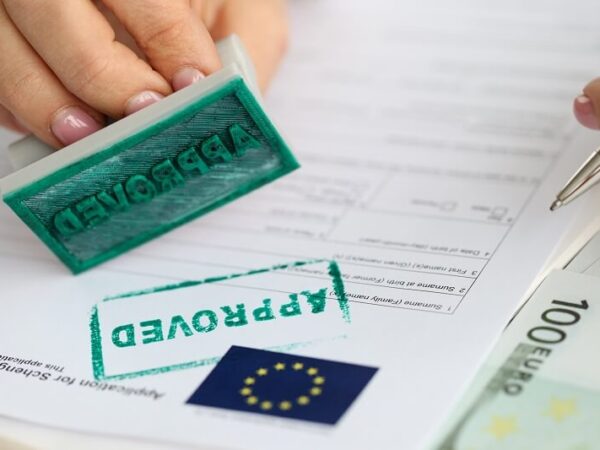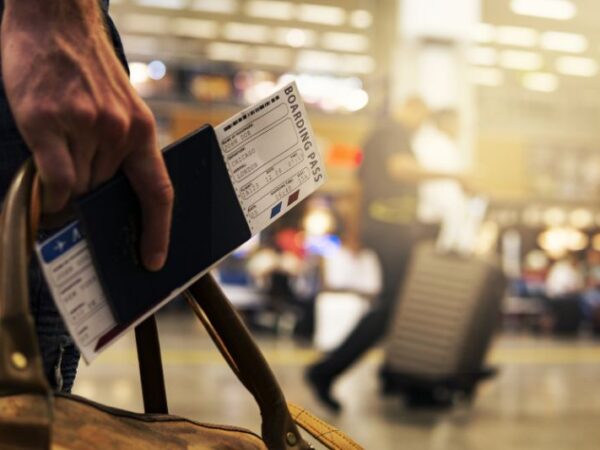While citizens of European Union countries, as well as those from countries that have a visa-free agreement with the EU, do not, as yet, require a Schengen Visa to enter or travel through a Schengen Area member state, many intending visitors will. The visa-exemption countries include the United States, Australia, South Africa, New Zealand, Canada and several others. British citizens are also visa-exempt for the present, though this situation may change in the future as the European Union rolls out the European Travel Information and Authorisation System (ETIAS) in 2023 and 2024.
Citizens of all other countries that do not enjoy visa-exempt status must possess a Schengen Visa for the country (or countries) being visited and this is a two-part process. Firstly, the intending traveller must submit a detailed online application form, and secondly, the applicant must arrange and attend a personal interview with the relevant embassy, consulate or designated visa processing centre.
The interview is an integral part of the visa application process as it is here that the consular officials have a chance to personally meet and assess the applicant and render a judgement as to whether the visa should be granted or refused. The purpose of the interview is to question the applicant regarding the reason(s) for the visa and determine if the details supplied on the application form are truthful and match the answers to the interview questions.
Objective Assessment
The prime objective of the interview is to determine whether or not the applicant is visiting the country for valid reasons, thus reducing the risk of permitting undesirable elements to enter the Schengen Area, which could pose a security risk.
The questions asked at a Schengen Visa interview can cover a wide range of topics. They can range from the applicant’s travel plans to recent travel history and some may even be of a personal nature. All questions are designed to allow the interviewer to get a better understanding of the applicant and then make an objective assessment of the person’s merit, honesty and trustworthiness.
Most Frequently Asked Questions
Questions will vary according to the purpose of the visit, how long the stay is for, whether travelling solo or as part of a larger group and many other variables.
While many of the questions may revolve around the information supplied on the visa application and the applicant’s travel itinerary, these are far from the only topics that may be covered. There is no set list of questions that may be asked, but some of the most frequently asked are with regard to:
- Marital Status: Applicants may be asked if they are married or not and, if so, to provide the exact date of the wedding. A wrong answer may raise some suspicion in the interviewer’s mind as to the applicant’s veracity.
- Travel Companions: Solo travellers just need to state this fact while those travelling with a spouse, relative, friend, or children should be able to provide details of those people who are accompanying the applicant.
- Duration of Visa: Applicants should be prepared to offer a reasonable explanation for the length of the visa being applied for. For the interviewer, a shorter visa may be sufficient for the itinerary outlined on the application form.
- Funding: Most types of Schengen Visa require the applicant to demonstrate adequate funding for expenses and accommodation but this may also be requested at the interview. Copies of the last six month’s bank statements should be brought to the interview in case proof of funding is requested.
- Study: For applicants seeking a Schengen Visa for study purposes, it may be necessary to furnish documentation proving enrolment in a recognised educational establishment as well as details as to how the period of study will be funded.
- Student Friends and Relatives: Applicants seeking a visa for study purposes may be asked for details of friends or relations already enrolled in an educational course in the country. If requested, the applicant should be able to provide names and details of the duration and location of these studies.
- Health Insurance: Virtually certain applicants will be asked if they have sufficient travel health insurance to cover illness or accident while in the country. Such documentation should accompany the application form and be brought to the interview.
- Personal Relationship: Of a more personal nature, the applicant may be asked about current relationships, such as a boyfriend or girlfriend. This is particularly pertinent if the other person is currently resident in the Schengen Area or a citizen of the country being visited.
- Employment: Applicants are frequently asked about their current employment situation. Questions regarding employment should be answered truthfully and fully as the details provided can be easily checked, and the visa should be refused if inconsistencies or untruths are uncovered.
- Leave Approval: Visa applicants in full-time, part-time or temporary employment should bring a signed, stamped and dated letter from the employer confirming the applicant’s status and permission to take leave. Such letters are not always requested but it is vital to have this document at the interview, as failure to do so may adversely affect the outcome.
- Children: Applicants with children may be asked general questions about the children’s ages and schools attended, and this is even more likely if the children are accompanying the applicant on the trip. Applicants with older children may be asked for details about the children’s employment and approximate salary. Another question that may be asked is whether the applicant’s children have children of their own.
- Friends or Relatives: If asked, it is important to inform the official of any friends or relatives who are citizens or official residents of the country being visited. In many cases, the officials will already be aware of close friends or relatives and omitting to mention one or more of these may be construed as suspicious.
- Tax Details: Applicants may be asked whether or not they pay taxes, as this is indicative of regular income. The purpose of this question is to determine if the applicant has a job and is, therefore, more likely to return home when the visa expires.
- Flight Tickets: Proof of a return flight (or other means of travel) is a requisite part of the application process. The applicant will be asked to provide documentation showing that travel has been booked for the dates stated on the application form.
- Previous Schengen Visas: A very common question asked is whether the applicant has visited the Schengen Area previously. If so, details will be required as to where, when, for how long, and the type of Schengen Visa used. If this is a first-time application, this should be stated in answer to the question.
- Previous Visas: A common question at the interview is with regard to previous travel and particularly where a visa was required. This is important as an applicant with a history of overstaying a visa, being refused entry to a country or having been deported will have considerable difficulty in securing the required Schengen Visa.
- Length of Stay: An interviewer may question the reasons for the length of the visa, and a good explanation will be required. For this reason, it is strongly advisable to compile a day-by-day itinerary plan listing the places being visited, why and for how long. Many visa administrators expect some form of travel itinerary to be supplied at the interview, which will document the visitor’s plans for the visit.
- Estimated Costs: The interviewer may ask questions regarding how much the entire trip is expected to cost and be satisfied that the applicant has, or has ready access to, sufficient funds for all expenses that may arise while in the Schengen Area.
- Main Purpose: The most commonly asked question is why a traveller wishes to visit the country in question. This will be for a specific purpose, which will determine the type of Schengen Visa that should be applied for. The main reasons could be study, visiting friends or relatives, medical treatment and holidays. Whatever the main purpose of the visit, applicants should have a basic explanation for applying for a visa and supply any documentation which supports the reason given.
- Seeking Employment: All Schengen Visas prohibit the holder from seeking employment (even unpaid work) while in the Schengen Area. However, this is a rule that is often broken by some, and the interviewer may query the applicant’s employment status to seek reassurance that this will not be the case should the visa be granted.
- Accommodation: Details of accommodation booked (even if staying with friends or relatives) are a required part of the application procedure. The interviewer may have questions concerning the applicant’s accommodation plans and ask for documentary proof of confirmed bookings or a letter confirming that accommodation is being provided.
Main Purpose
The interviewer’s aim is not to catch the interviewee out but to get an overall impression as to whether he or she can be trusted to obey the Schengen Visa rules and pose no criminal or terrorist risk. It is understood that the applicant may be nervous and make simple errors, but any issues can be avoided by preparing for the interview and ensuring that any supporting documentation is readily available.
Tourism and income from visitors are important for every country, and the main purpose of the interview is simply to meet the applicant and get an overall sense of the person’s veracity. Almost 100% of visa applications are granted with little difficulty unless a major issue should arise. The vast majority of applicants who attend a Schengen Visa interview have already been thoroughly checked by the authorities and will be granted the required visa.




